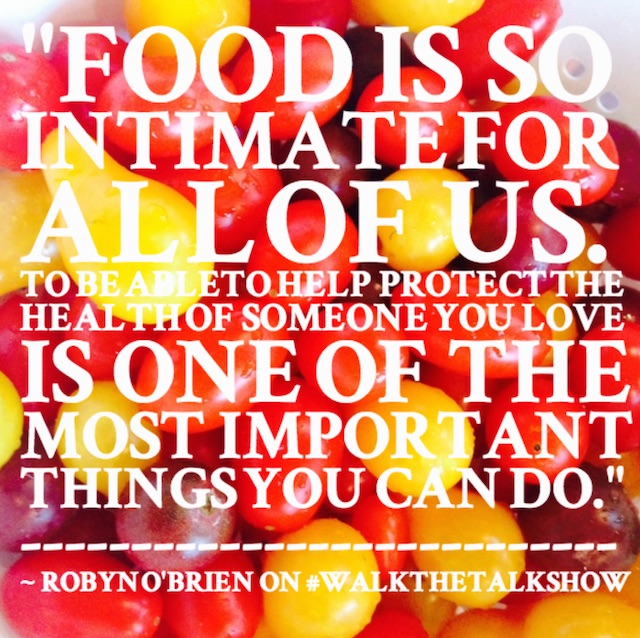I’m a sexologist, and I’m coming out to you about my food issues—and it’s not what you think.
My relationship with food, like anything, has been a journey, and I had an epiphany recently that I would like to share with you.
Let me start from the beginning. Some of my earliest memories of food include:
>> Morsels of food being shoved into my mouth when I’m not hungry. I’m probably three. The metal spoon hits my teeth, and I’m forced to stop protesting and finish my food through tears of anger and frustration.
>> Being told I’m taking too long to eat—that I don’t need to completely chew my food before swallowing. I chew and swallow, chew and swallow. I’m praised and feel relieved I am being a good little girl. (To this day, I have difficulties chewing my food completely before swallowing.)
>> Being ordered to finish everything on my plate—every grain of rice. (To this day, I have difficulties leaving food on the plate and hence “wasting food” even when I’m full.)
~
One of the most important things you can do for your vagina and your sex life—to avoid a world of problems later? Check out this device and get a free bag of craft coffee (code; EJCOFFEE)>>
~
Unfortunately, these negative early experiences led me to grow up with food issues, I believed:
>> Food was for survival. I eat to live (unlike most Singaporeans, who take pride in living to eat).
>> Food was more trouble than it’s worth. (“Better things to be doing.”)
>> Food leads to conflict, fights and the banging of pots and pans.
Consequently, I:
>> Ate out at hawker centres and food courts all the time.
>> Had little interest in learning about food or nutrition.
>> Hated cooking for anybody, especially myself.
>> Suffered from chronic constipation, bloated stomach and chronic fatigue.
It wasn’t until I was pursuing my doctorate in human sexuality in San Francisco that I decided to lay off eating meat for a while. I was tired of eating burgers and feeling bloated all the time.
Within days, my chronic fatigue improved. My brain felt less foggy. Back then, I knew so little about diet and nutrition that I couldn’t have put two and two together—that it was actually the cutting down of gluten (and not just meat) intake causing this. Going vegetarian (first as a detox, then for humanitarian reasons) wasn’t too difficult for a self-declared non-food lover. I never looked back and have been a vegetarian since 2007.
It wasn’t until I chanced upon the book Life After Bread seven years later that I learned I might be gluten-intolerant. In an experiment to cut out gluten for one-month, I quickly realised it was the root of a lot of my food problems. Within days, I felt better in my body than I’d ever been. I’d had bread for breakfast my whole life—no wonder I didn’t know what “normal” felt like! I began to experiment further and realized I was also diary intolerant, as are many people.
While my stomach bloating improved, it didn’t ease up completely. I consulted a nutritionist. Her answer: not all vegetarian food is healthy, and the way food is cooked is more important than the type of food cooked. My eating over-cooked and oil-coated vegetables at hawker stalls wasn’t doing me any favours. Such food had low nutritional value, and my body was unable to digest it before it reached my stomach, leading to bloating.
Why wouldn’t I cook? Friends urged me to try—I had to with my food sensitivities, they reasoned. But they didn’t have the kitchen I had. The kitchen was an uninspiring mess, and it was unwelcoming, daunting and frankly scary to enter.
House-sitting has changed this for me. Just days before I moved into the big house I would be house-sitting, a friend made a last-ditch effort to teach me to cook: pasta with tomato sauce. Once I got to the house, I recognized I now had the space, and a clean kitchen to try cooking. I failed at the pasta on my first attempt, but realized I enjoyed cooking! Cooking supported my belief that I ought to invest into myself.
I knew I loved myself. I knew I wanted to heal my relationship with food. I knew I wanted a better relationship with my body. I just didn’t have the space to do so!
What, then, is the epiphany I promised you, dear reader, at the start of this article?
As a sexologist, I would tell you that the fastest way to heal your relationship with sex is to have more sex (and I don’t mean mindless sex). This can include solo sex or masturbation, of course. Over-thinking or repeatedly talking about your desire to have a better relationship with sex, without taking any action, only works at a limited level; you need to actually do something too. This can be in the form of small actionable steps in reclaiming your sexuality (e.g. looking, touching, naming, and exploring your genitals).
Why, why, why had I spent years trying to understand the interaction between food and my body, strengthened my determination and desire to have a better relationship with food, and yet didn’t take any action to get my hands into food by cooking?
Once I did, an ah-ha! moment came to me. I recognize now that the more I cook, the more I will feel comfortable in the kitchen, and the more I will heal my relationship with food. The solution is do—do more!
Dear reader, don’t just talk about your desire, or strengthen your knowledge; combine it with small steps. If you were to take one tiny step toward healing your relationship with “X” (be it sex, food, money, love, power), what would it be?
I am so looking forward to learning how to cook more complicated dishes. Now, to the kitchen!
~
Author: Martha Tara Lee
Image: Walk the Talk Show
Editor: Toby Israel
~
Ready to join?
Hey, thanks so much for reading! Elephant offers 1 article every month for free.
If you want more, grab a subscription for unlimited reads for $5/year (normally, it's $108/year, and the discount ends soon).
And clearly you appreciate mindfulness with a sense of humor and integrity! Why not join the Elephant community, become an Elephriend?
Your investment will help Elephant Journal invest in our editors and writers who promote your values to create the change you want to see in your world!
Already have an account? Log in.
Ready to join?
Hey, thanks so much for reading! Elephant offers 1 article every month for free.
If you want more, grab a subscription for unlimited reads for $5/year (normally, it's $108/year, and the discount ends soon).
And clearly you appreciate mindfulness with a sense of humor and integrity! Why not join the Elephant community, become an Elephriend?
Your investment will help Elephant Journal invest in our editors and writers who promote your values to create the change you want to see in your world!
Already have an account? Log in.
Ready to join?
Hey, thanks so much for reading! Elephant offers 1 article every month for free.
If you want more, grab a subscription for unlimited reads for $5/year (normally, it's $108/year, and the discount ends soon).
And clearly you appreciate mindfulness with a sense of humor and integrity! Why not join the Elephant community, become an Elephriend?
Your investment will help Elephant Journal invest in our editors and writers who promote your values to create the change you want to see in your world!
Already have an account? Log in.

 Share on bsky
Share on bsky







Read 0 comments and reply